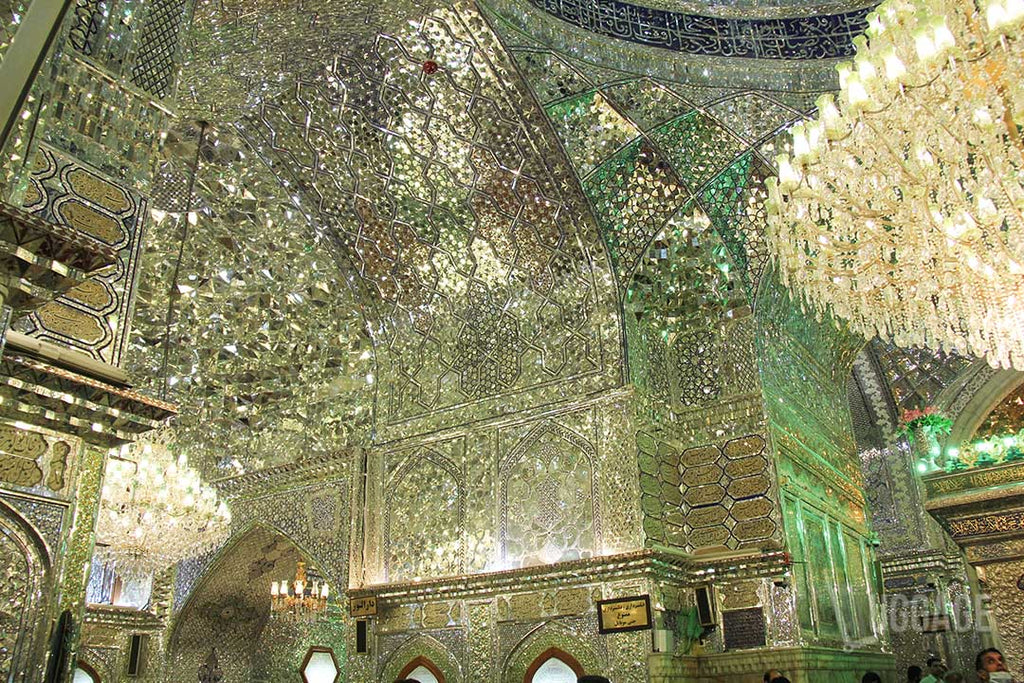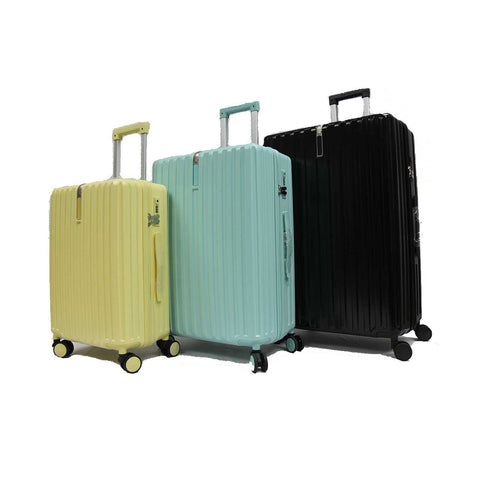Prior to visiting Iran, we only knew Shiraz either as a red wine, or the kebab stall along Orchard Road, Singapore. Little did we expect Shiraz to be a romantic city full of poets, literature, flowers and dazzling shrines. It was also the seat of the Zand dynasty in the 18th century, founded by Karim Khan. We arrived in Shiraz after a day trip departing from Yazd, through Pasargadae, Naqsh-e Rustam and lastly Persepolis.
We spent a total of 2 full days in Shiraz.
Expenses for 2 persons: S$365 (Hotel - S$108, Meals - S$85, Transport - S$36, Entrance tickets - S$43, Shopping - S$93)
Things to do / Places to see in Shiraz
Nasir ol Mulk, also known as the Pink Mosque (IRR100000 per pax / S$4 per pax), is a mosque most visited by tourists in the early morning hours between 730am to 930am. The early morning sunlight would pass through the stained glass and cast breathtaking colours on the carpets.
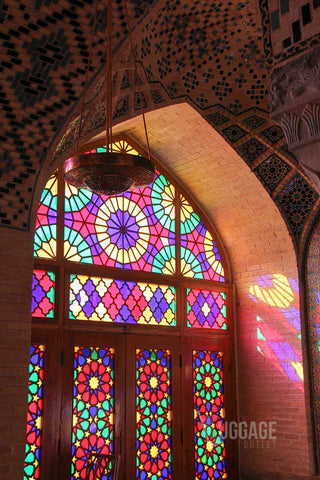
To catch the natural light show in full splendour, we recommend you to visit as early as you can wake up, as we had quite an upsetting episode at the mosque when we reached at 8am, bumping into a tour group that hogged the best picture spots for almost a full hour. It was only until another tour group who lost their patience that they got this inconsiderate group to leave.
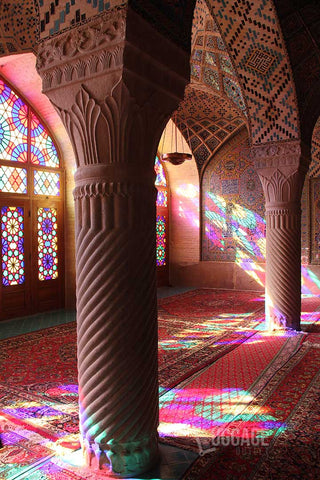
As this mosque remains a holy place of worship for the locals, be reminded to not take off the headscarf, as well as not eat in the mosque. These were again, disappointing behaviour from the inconsiderate group.
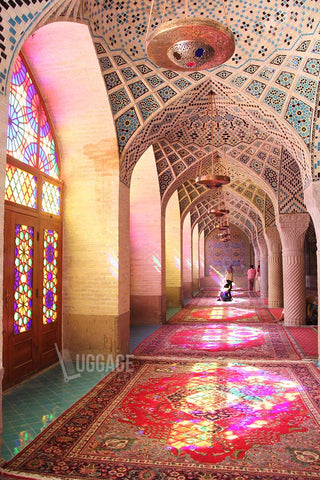
As the time draws nearer to 930am, the coloured lights would stretch beyond the first row of pillars and would not look as beautiful.
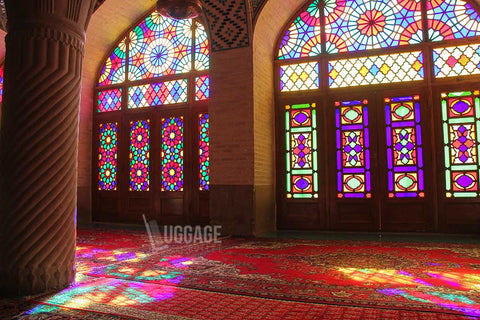
Here's how the mosque looks from the exterior, with white sheets (on the right of the picture) diffusing the sunlight before casting the coloured light rays on the carpets.

There were also many gorgeously painted arches and walls.
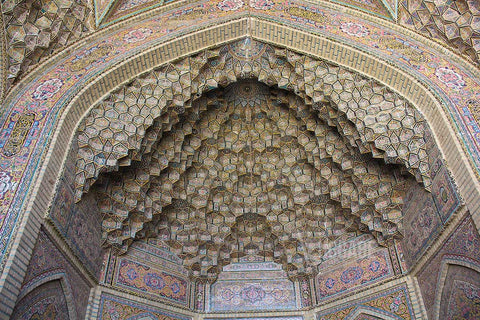
Located just less than 5-minute walk away from Nasir-ol-Mulk, is Naranjestan Garden, otherwise known as Qavam House. This traditional and historical house belongs to a merchant known as the Qavam family.
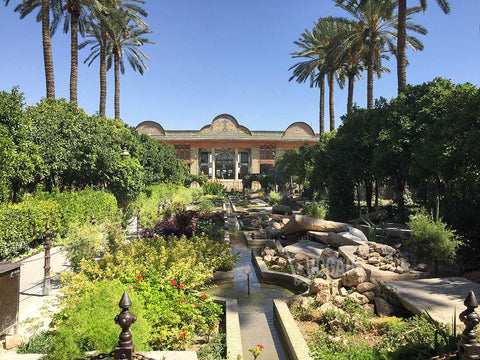
The mirror work in the front porch was unexpectedly a 'teaser' for the even more impressive mirror work in the shrines we would later see in Shiraz.
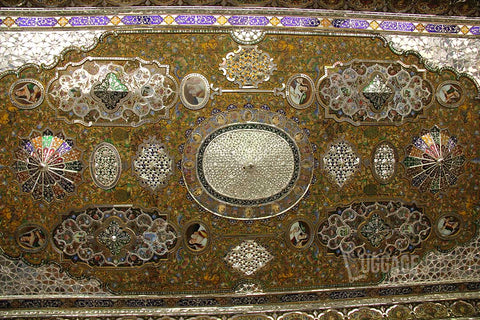
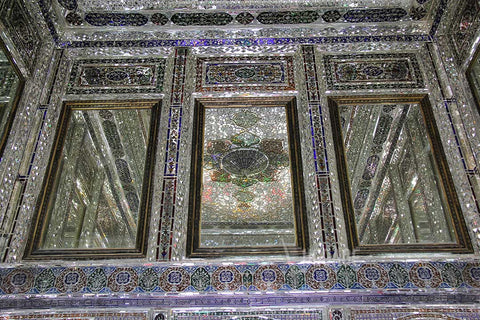
The ceilings of the house was also beautifully painted with art inspired by Victorian era Europe.
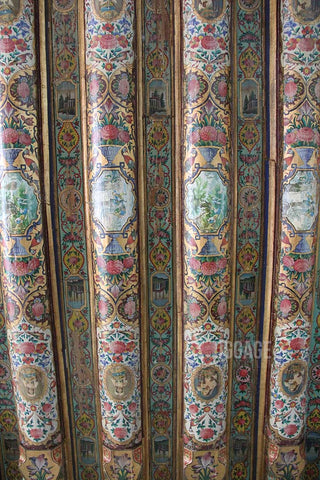
Vakil Mosque (IRR50000 / S$2 per pax), is a mosque that is within walking distance of the places visited earlier. It has a simpler, more plain architecture as compared to the ones in Isfahan. Perhaps due to the holiness of the place, ladies are required to cover up (provided at the entrance) their entire body, like wearing a burqa.
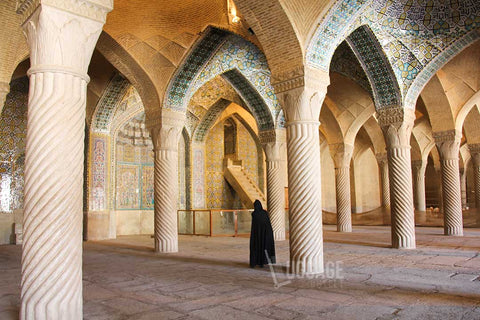
The center portion of the prayer hall is where they have more decorated ceilings.
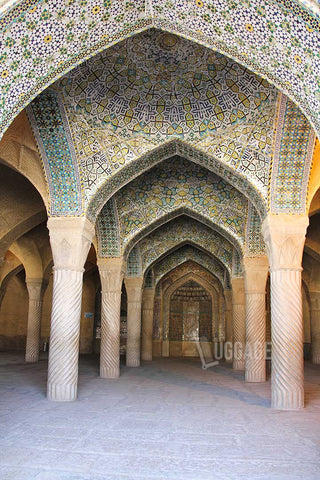
Situated also in the historical center of the city is Vakil Bazaar, a typical Iranian marketplace visited by locals and tourists alike. As you can see below, Iranians have modern fashion sense despite the modest dressing guideline.
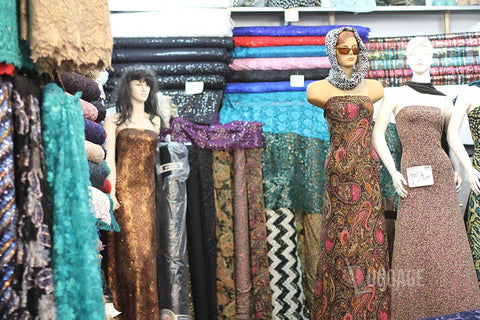
Visit one of the spices shops if you love to cook!
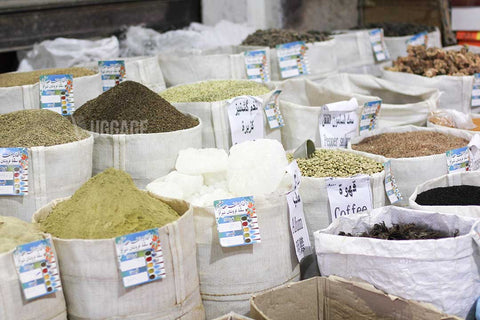
About 10 minutes walk away, we visited Arg-e-Karim-Khan, the citadel where the first ruler of Zand dynasty, Karim Khan lived. The interesting part of the complex is perhaps the 'leaning tower' (at 14 metres tall) below, which resembled the one in Pisa.
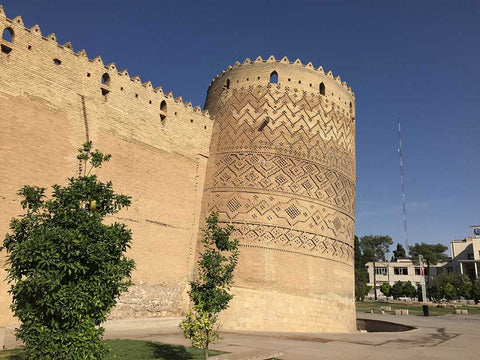
The citadel also provides onsite tour guide, at 200,000IRR / S$8.70 for 2 persons. As the paintings were plastered over after the fall of Qajar dynasty to convert the place into a prison, there was not much to see within the compounds.
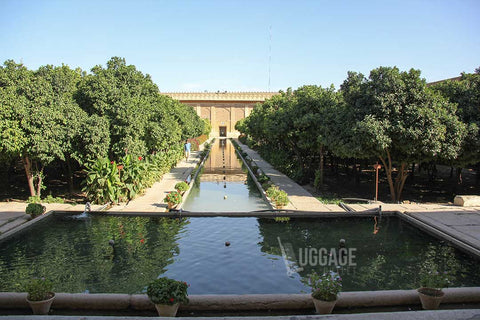
We then took a cab (IRR100,000 / S$4) to Saadi Mausoleum, where one of the most famous poets in Persian history, Saadi, was honoured. His poems were quoted by UN secretary-general and former US president Barack Obama, encouraging people to nice to each other and help each other when in need.
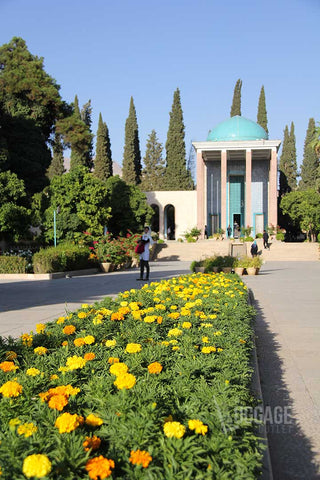
Hafez Mausoleum, a cab ride away (IRR70,000 / S$3) from Saadi Mausoleum, is where another famous Persian poet is commemorated for his contributions to Persian poetry. Many locals were present when we went, sitting down on the steps chatting or enjoying the tea served at the teahouse.
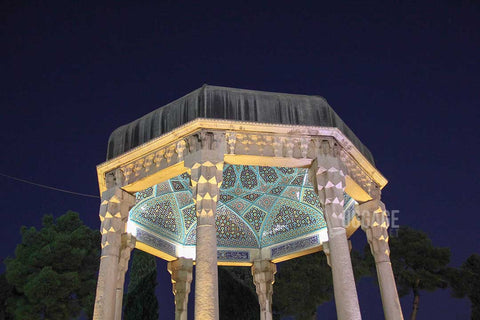
Just minutes-walk away, Qur'an Gate is a structure built in the 10th century on the fringe of Shiraz city, said to bless the people who passed beneath it.
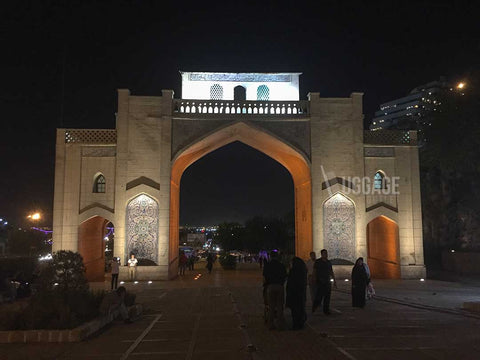
On the side of the gate is a park where you could have a bird's eye view of the glittering city at night.
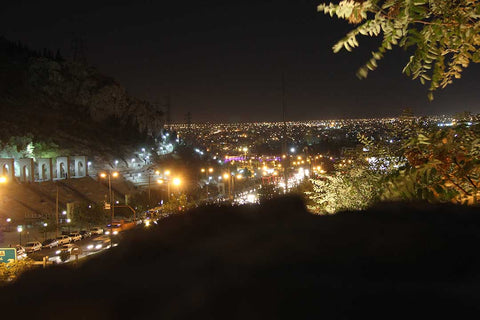
We saw parkour practitioners utilising the walls alongside the park to demonstrate their jumping and somersaulting skills, which reminded us of the vintage video game in the 90s, Prince of Persia.
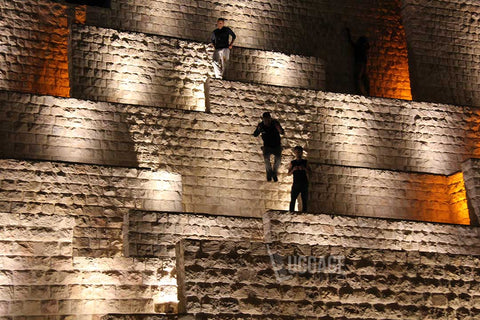
Possibly the most memorable, mind-blowing, jaw-dropping place we have visited in our entire Iran trip, is the Shah Cheragh Shrine (free entry with voluntary guides!). Even though the exterior of the complex looks clean and plain, the interior artwork is the most incredible we have ever seen.
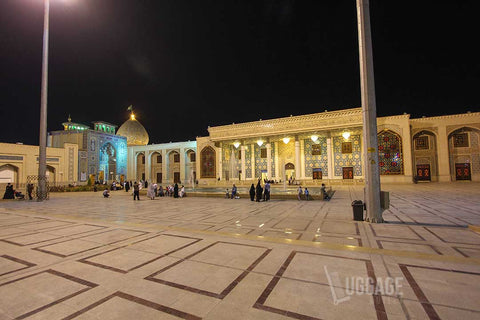
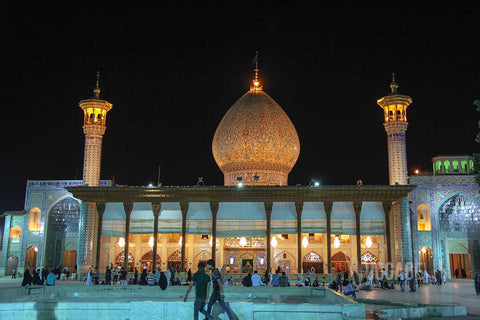
After going through a routine security check at the entrance and greeted by the voluntary guides at the door, we proceeded to the main hall where we were required to take off our shoes. Ladies and men are required to visit the interior through 2 different chambers.
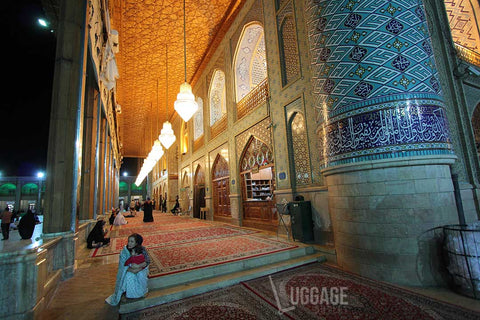
Upon entering the main hall, we were stunned and 'blinded' by the millions of mirror-work right before us! While the worshippers were deeply focused on their prayers at the mausoleum, we were completely enthralled by the beauty of the interior.
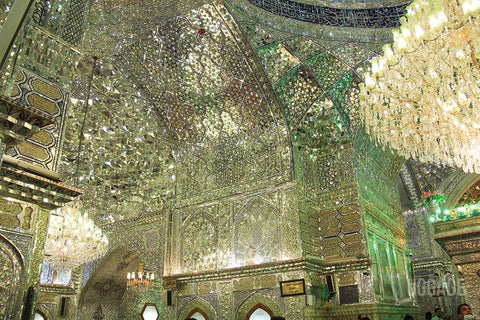
Huge, glitzy chandeliers lit the breath-taking place.
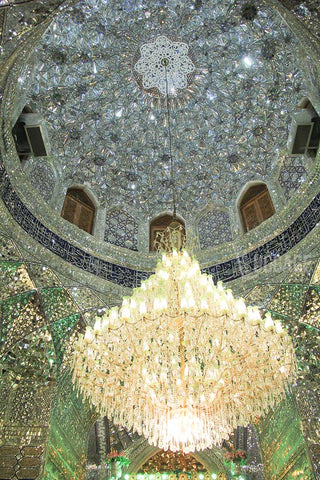
As spectacular as it could be, we couldn't keep our mouths closed, gasping at the incredible sight.
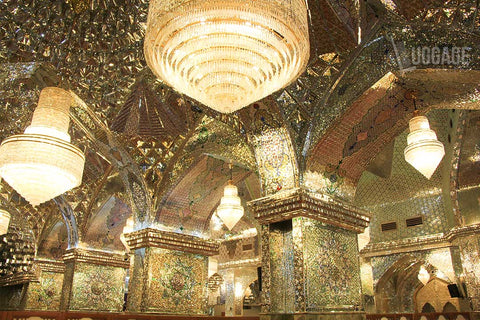
These mirror-work, made up of countless mirrors cut in small polygons and assembled in perfect symmetrical fashion, is as impressive as it could get.
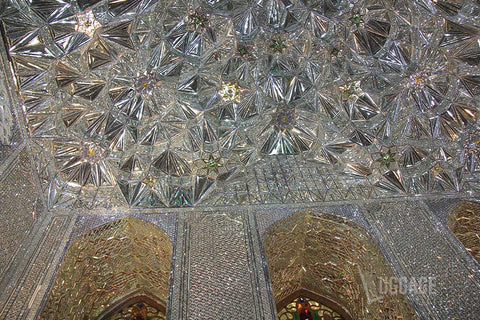
Seeing the mirror-work right before you is the only way to admire its true beauty.
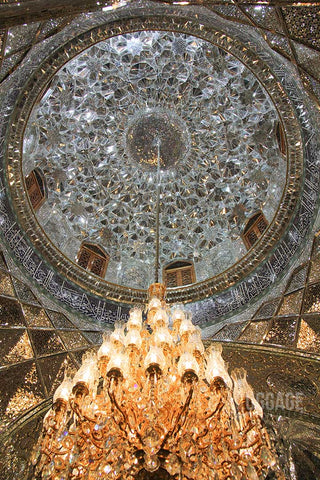
As the shrine was renovated just a few years ago, this prayer hall below shows the more subtle, classy side of Islamic architecture.
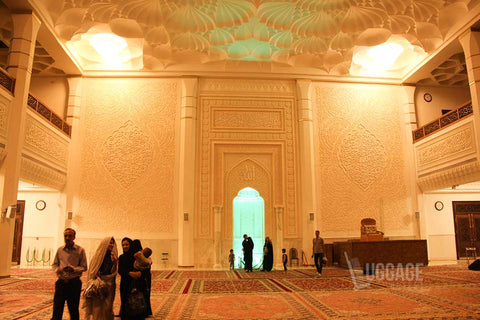
The next morning, we took a cab (IRR100,000 / S$4 per pax) from city centre to Eram Garden, the third and last of Persian Gardens we would see. Eram, is the Persian version of the word Arabic word 'Iram', which means heaven in Qur'an. The three-storey pavilion was decorated with tiles inscribed with poems from the famous Persian poet Hafez.
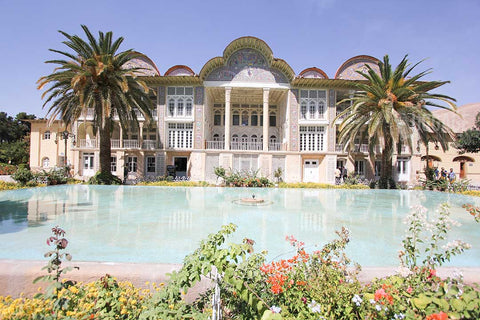
Apart from the structures typical of Persian Gardens such as water channels, gardens and pavilion, Eram Garden is decorated with towering rows of cypress trees, with one even dated back to 3000 years ago!
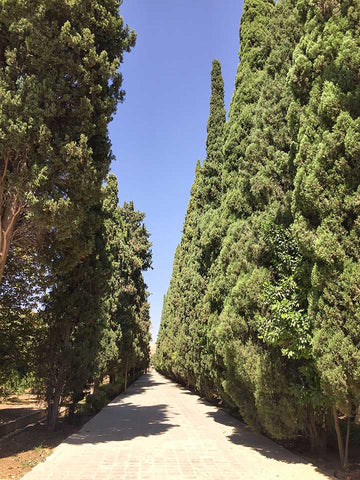
While we were still gushing about the beauty of Shah Cheragh's mirror work saw the previous night, we discovered another gem in Shiraz - Ali Ebne Hamze Shrine, a less visited shrine as compared to Shah Cheragh, but just as beautiful, albeit on a smaller scale. Female visitors are required to wear the chador (provided at the door) as per the holier places.
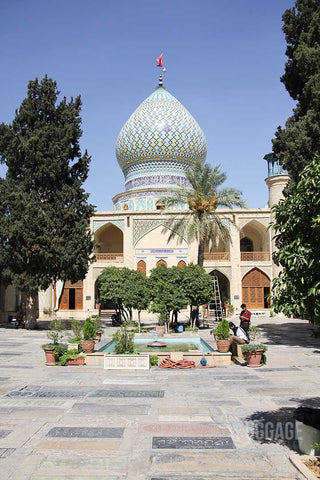
Once again, we were in awe of this incredible mirror-work in the shrine, this time, almost all to ourselves.
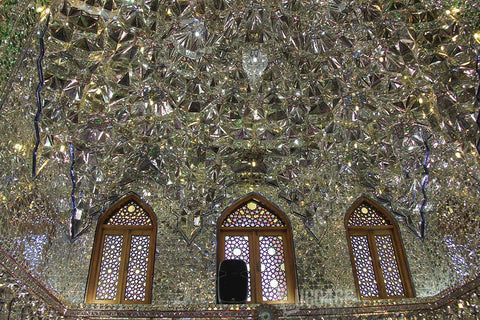
Spend as long as you like, staring at the millions of mirrors lighting up the space.
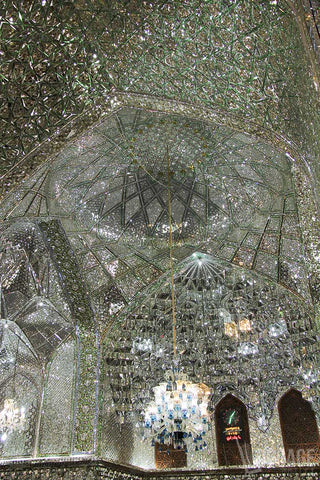
Despite not being a worshipper, we can't imagine anyone not mesmerised by these mirror work, not seen anywhere else we've been to.
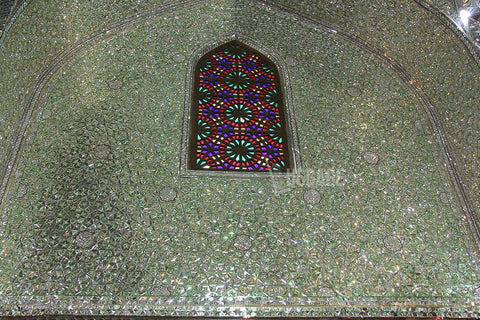
Another interesting fact a local told us was, these slabs on the ground in the shrine are tombstones of worshippers who were buried underneath. Contrary to our Chinese beliefs, passers-by are encouraged to walk on the tombstones, without 'offending' the deceased.
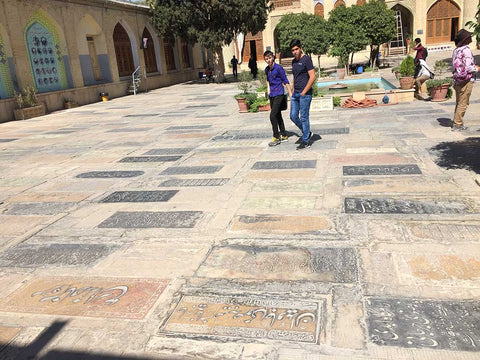
What food to eat in Shiraz
While Shiraz serves pretty much similar food options as other Iranian cities, there is a faloodeh stall situated just opposite Nasir ol Mulk Mosque that we strongly recommend.
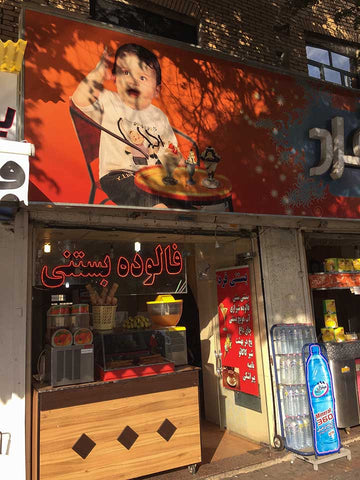
It is a stall frequented by locals, we loved the dessert and drink so much that we went 2 days in a row! Coincidentally, the owner's nephew/son works in Singapore! Here's a drink that you might want to try, a wheat-like mildly sweet drink that's perfect for the hot weather.
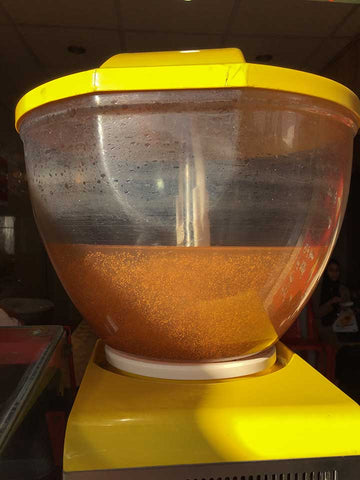
Faloodeh, while similar to the one we tried in Isfahan, is stickier and delicious.
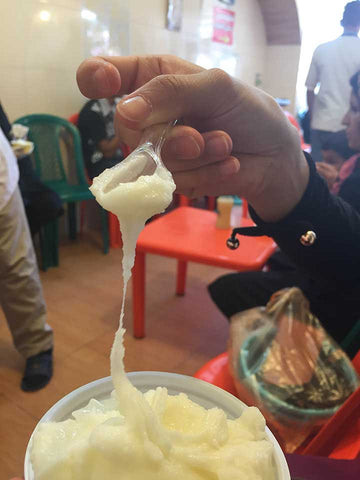
Sitting down in the shop with the locals, sipping the drink, slurping the faloodeh, it felt like a very homely experience.
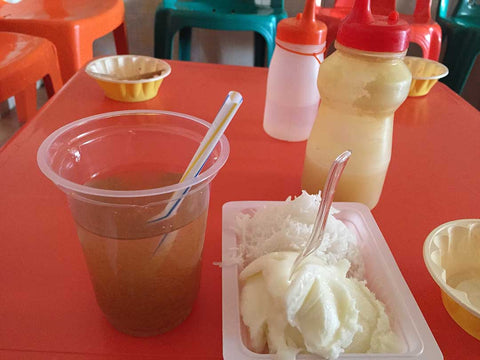
On the other hand, there were quite a number of shops in Shiraz (maybe other cities as well but we didn't see) selling freshly-baked naan in gigantic portions.
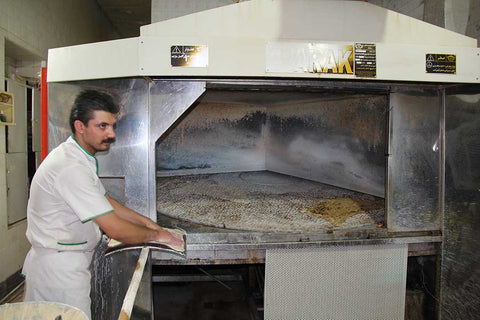
A staple of Iranian cuisine, these naan are usually served as starters in the restaurants too.
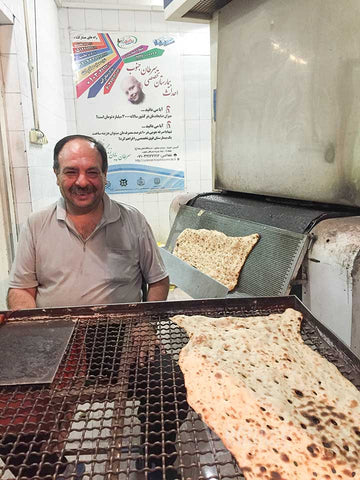
If you're a fan of out-of-this-world architecture, Shiraz is a city that you must add to your bucket list!
Next stop: Tehran

